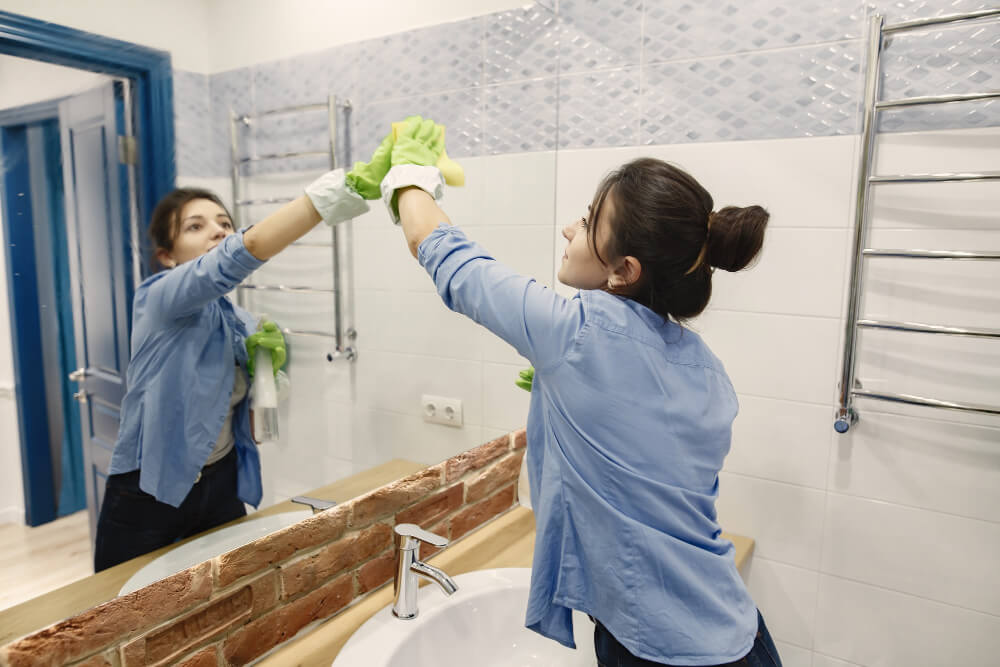Cleaning Tips for Historic Houses

Historic homes include a wealth of architectural and cultural importance. From grand Gilded Period palaces to lovely colonial cottages, these sites encapsulate a bit of history that we must conserve for future generations.
But, keeping a historic property may be difficult, particularly when it comes to cleaning. You must not only contend with the normal filth, dust, and grime, but you must also keep in mind the beautiful features and items that may be easily destroyed.
We’ll go over some cleaning tips for historic houses in this post. Let’s begin.
Analyze Your House
Take some time to analyze the state of your house before beginning any cleaning duties. Determine which areas require the greatest attention and establish a list of any features or materials that require particular maintenance. If you have antique furniture or fragile fabrics in your house, you may need to use softer cleaning procedures or avoid certain cleaning chemicals entirely.
Consult a professional cleaner or a historic preservation specialist if you’re unclear about how to clean a specific object or surface. You can also contact the cleaners of HomePlus house cleaning services in Lincolon, MA, for cleaning and to avoid damaging your historic house.
Use the Right Cleaning Product
Historic homes are sometimes a blend of old and new. It’s vital to understand what’s original and what isn’t. Each surface is affected differently by dirt. Washing them with the incorrect chemicals or handling them incorrectly might result in major harm. Consider, for example, fabrics and wood. Because the oils from your hands can harm ancient wood and upholstery, you should wear gloves when dealing with them.
Several modern cleaning solutions include strong chemicals that might harm or discolor historically significant surfaces and materials. Avoid using items containing bleach, ammonia, or any other harsh ingredients. Instead, utilize mild cleaning products made particularly for historical materials, such as pH-neutral cleansers and so forth.
Use Soft Cloth OR Brush to Dust
You should clean without using too much water or chemicals. Because both water and liquid cleaners can cause irreversible harm to some historical materials, the safest technique is to remove dust and loose particles using a dry cloth or soft-bristled brush.
Whenever a heavier-duty cleaning is required, it is essential to choose the safest technique for the item being cleaned. Carefully test a small area first to ensure that the cleaning method and solution are appropriate for the surface.
Use Sun and Dust Furniture Covers
Strong rays from the sun might approach your living area. As a result, it may cause UV light to damage your wooden furniture and upholstery. This might up cause damage to your antiquities! And we know no one wants that.
Fortunately, sun and dust coverings are available to assist you in safeguarding your furniture. They are often available in cotton sheets which can not only survive solar rays but also protect your furniture from pollution, animal hair, dandruff, and other contaminants. As a result, your antique home will appear clean.
Walls and Wooden Cabinets
Using a neutral cleaning product, lightly scrub the walls with a white, nylon-backed scrub brush. Abrasive scrubbers or cleansers should be avoided since they may harm the surface of the walls. To avoid damage, work in tiny sections and quickly (extra) dry water off the walls using a lint-free towel.
With a soft sponge, clean the wooden cabinets with dish soap and water and use a terrycloth towel to dry the cabinets. After cleaning the whole cabinet with an oil soap solution, buff the cabinets to a shine. While the oil soap leaves a tiny sheen, don’t polish the cabinets.
Vacuum the Floors
High-Efficiency Particulate Air (HEPA) vacuums are excellent cleaning tools for historic homes because they have HEPA filters that collect dirt, debris, and dust and keep them from returning to the air.
This is extremely useful if you reside in your historic house with tiny kids. Moreover, HEPA vacuums aid in the removal of the bulk of environmental toxins that reside in the quality of your air.
Mold and Mildew Cleaning
Mold and mildew cause major issues in ancient properties, particularly in places with high humidity or dampness. Address any symptoms of mold or mildew immediately, such as a musty odor or discoloration on walls or ceilings.
Employ a natural mold and mildew cleanser, such as vinegar or tea tree oil, and then thoroughly dry the area. Consult a professional cleaner or restoration specialist if the mold or mildew has grown to a significant area or if you’re unclear about how to deal with it.
Hire the Cleaning Experts
Historic homes are unique and very sensitive, especially when cleaning, and they can be damaged by one small mistake when cleaning.
The best way to clean your historic house is to hire HomePlus house cleaning services in Lincoln, MA. Our cleaners have the best tools, experience and cleaning products for cleaning historic houses.
Book an appointment by Press here
